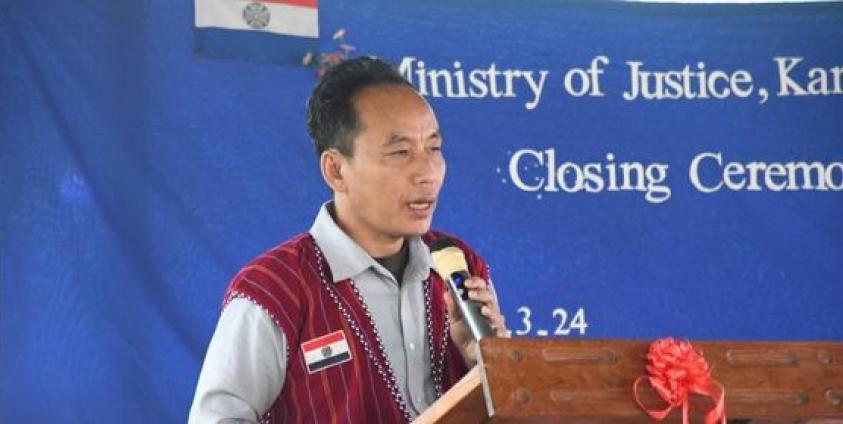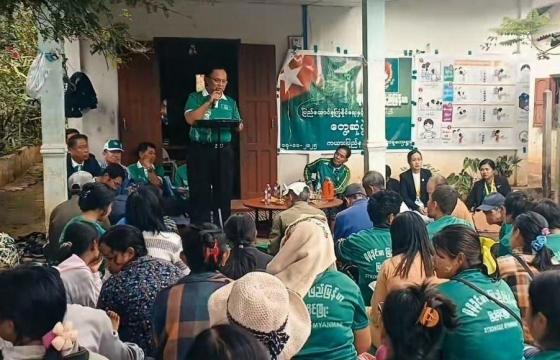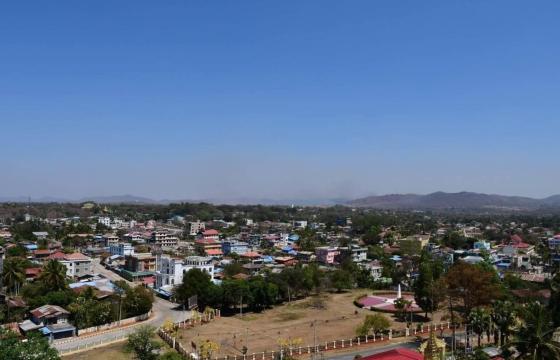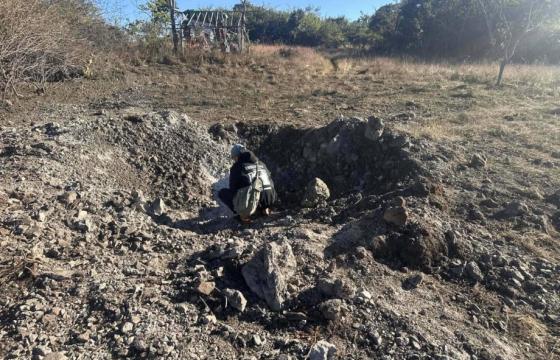The Karenni State Interim Executive Council (IEC)'s Department of Justice has commenced the setting up of courts and the management of the judicial sector of the liberated zones of the Karenni State.
The IEC's Justice Department head Khu Tor Reh S. reported that "The establishment of the State Supreme Court as the highest court for the entire Karenni State, along with the successful opening of two district courts and five township courts, marks a significant achievement.”
The already existing operational courts have been fielding complaints regarding a variety of disputes and cases, with prisoner-of-war and drug-related cases emerging as the most frequent. Penalties are enforced in accordance with the established rules and regulations outlined by the IEC.
Despite the availability of adequate cells within the courts, typically the accused are detained at the Karenni State Police (KSP) detention center during the trial period; the township and district level courts were inaugurated in January of this year.
If there are any incidents, people have the option to report them either through village and community committees or directly at KSP's police stations. However, Khu Tor Reh has recognized that given the recent commencement of operations, there may still be areas of shortcomings and room for improvement.
To address the staffing requirements of the judicial sector, IEC has implemented a two-month training program for 39 graduates, equipping them for key roles as lawyers and judges, crucial to the judiciary of Karenni State.
One trainee attending the course wanted to rectify the significant deterioration of the judicial system following the coup.
"It is crucial to uphold the rule of law. This means having a judiciary that works well with democracy, and ensures fair treatment for everyone, including those accused of a crime. Addressing these issues is key to fixing the problems in the legal system”, she said. IEC also intends to appoint graduates and establish more township-level courts.






